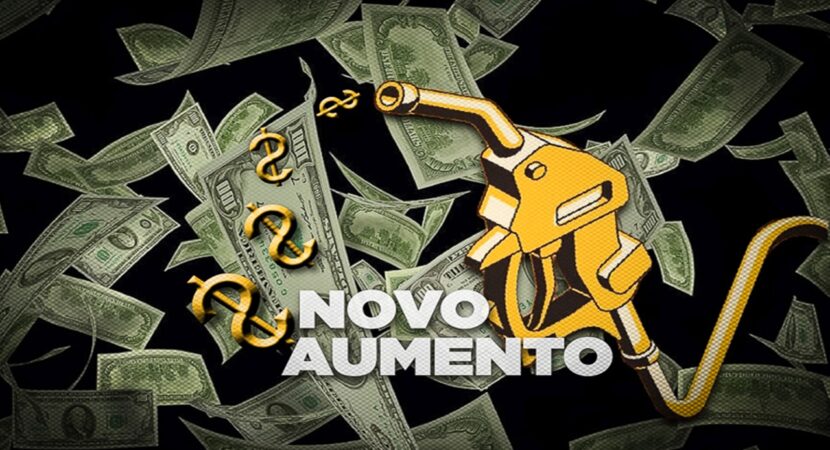
Undetermined strike by truck drivers, starting July 25, against the increase in fuel prices, does not intimidate Petrobras, which made a new readjustment in the prices of diesel, gasoline and LPG
High gasoline, diesel and cooking gas prices did not prevent Petrobras from increasing fuel prices even more yesterday (06/07), which started with a blow to the pockets of truck drivers and millions of Brazilians who suffer as a result of the disproportionate increases in relative to current income. The new increase that came into effect as of yesterday caught the direction of the National Cargo Transport Council - CNTRC by surprise, given that there was a "positive" meeting of the entity held just a week ago with the president of Petrobras.
Read also
- Undetermined strike by truck drivers, starting July 25, against the increase in fuel prices practiced by Petrobras
- Gasoline prices soar again, ethanol confirms a significant increase at the plant, CNG breaks a record of R$ 5 at gas stations and consumers have nowhere else to run
- Renault asked its team to copy diesel engine fraud from Volkswagen, the world's largest vehicle manufacturer, to cheat vehicle emissions results
- Oil, uranium, copper and aluminum prices could skyrocket globally because of the 'green economy'
- Ethanol price soars and reaches almost R$ 7 at gas stations; reduction promises to arrive in the coming weeks to ease the consumer's pocket
- Gasoline, ethanol and diesel prices keep rising, deputies refuse to change ICMS amid skyrocketing fuel prices and Petrobras 'pays the duck'
In a meeting held just a week ago with the president of Petrobras, Gen. Silva e Luna, the board received information that its proposed pricing policy was under review by the company.
The price policy proposal presented by the CNTRC is based on the replacement of the Import Parity Price (PPI) by the Export Parity Price (PPE), as well as the taxation of crude oil exports, whose revenues would be used to compensate states and the Union to implement tax reductions on fuel.
For the leaders of the CNTRC, it is inadmissible for Petrobras' management to respond to pressure from organizations such as the Brazilian Association of Fuel Importers – ABICOM. The entity alleges that “it has nothing Brazilian about it, as it serves the interests of foreign companies and the capital market, such as Ativa Investimentos”.
National Cargo Transport Council sends letter to the president of Petrobras asking for the revocation of increases
Just yesterday, the CNTRC sent an official letter to the president of Petrobras asking for the revocation of the increases (check the file in this link). In addition to the letter, the National Cargo Transport Council issued a press release clarifying its position, which is available at this link.
The problem is much more serious than it may seem, as it affects not only truck drivers and their families (millions of Brazilians), but tens of millions of Brazilians who today suffer as a result of disproportionate increases in fuel prices in relation to the population's income. .
“It is necessary to put an end to this situation and free Petrobras from the extortion of importers and investors in the capital market”, says Cláudio da Costa Oliveira, a retired Petrobras Economist.
Tuesday (06/07) starts with a punch in the pocket of Brazilians: even with prices at heights, Petrobras once again increases the price of gasoline, diesel and cooking gas
Even with the price of gasoline, diesel and cooking gas skyrocketing, the Brazilian oil company Petrobras decided to increase, as of this Tuesday (6), diesel by 10,2 cents, which now costs R$ 2,81, representing a average increase of 3,8% per litre. The price of the most used fuel in the country has been frozen since May 1st, 66 days ago.
Gasoline delivered to distributors and cooking gas (LPG) also increased, further affecting the pockets of domestic consumers. Since 2019, there is no longer any differentiation in LPG prices.
Gasoline rose 15,7 cents to R$2,69 per litre, up 6,2%. 22 days ago, on June 12, Petrobras had reduced prices by around 2%. On May 1, it also made a cut on the same landing.
Undetermined strike by truck drivers, starting July 25, against the increase in fuel prices practiced by Petrobras
Last week, the president of Petrobras, Joaquim Silva e Luna, received the board of directors of the National Road Cargo Transport Council (CNTRC). The association has been talking about holding a truckers' strike since last month.
“Road modal transport is very important for Brazil. Petrobras seeks to understand society's actors, evaluates the best way to contribute to all of them and is always open to dialogue”, said Silva and Luna, according to a note from Petrobras.
Truckers' strike: every category is summoned by the National Road Cargo Transport Council – CNTRC, through a note, for a stoppage, for an indefinite period, from the next 25th of July, truck driver's day (São Cristovão). Cristovão means “he who carries Christ”. Click herei to read the full note released.
In 2018, truckers promoted a historic strike against the price of diesel
The demand from truck drivers, who even promoted a historic strike against diesel prices in 2018, follows constant complaints from President Bolsonaro himself about the cost of fuel.
In the letter sent to President Bolsonaro, the CNTRC asks the Government to adopt the taxation of crude oil exports “as an immediate measure”, while other claims must be analyzed, such as the end of the search for import parity.
“Resources arising from taxation on the export of crude oil may be used to compensate States and the Union in the reduction of taxes on fuel”, suggested the group of truck drivers.
Since Luna took office, on April 19, Petrobras has carried out only one price adjustment (a decrease for gasoline and diesel), announced on April 30. The international scenario contributed, as prices were somewhat stable.













Air Force F-16 fighters…
True friend, what they shot down were…
Air Force F-16 fighters…
I would like to know what planet you live on…
Air Force F-16 fighters…
Everything is fine, 100-year secrecy,…
Air Force F-16 fighters…
Well... It's flying scrap... Typical...
Air Force F-16 fighters…
Which genocide are you talking about? Than…
You don't know what...
They take off their leather there, even more Brazilian…
And the salary???
I am a crane operator and work in the area…
I'm Nancy, I'm interested. My experience and…
I'm interested, I worked as a doorman and service...
I work in the Industrial Automation area…
Holland is a good country if…